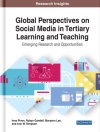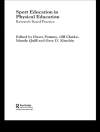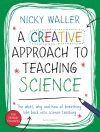Nations that are raising retirement ages appear to work on the assumption that there is appropriate employment available for people who are expected to retire later. ‘Gender, ageing and extended working life’ challenges both this narrative, and the gender-neutral way the expectation for extending working lives is presented in most policy-making circles.
The international contributors to this book – part of the Ageing in a Global Context series – apply life-course approaches to understanding evolving definitions of work and retirement. They consider the range of transitions from paid work to retirement that are potentially different for women and men in different family circumstances and occupational locations, and offer solutions governments should consider to enable them to evaluate existing policies.
Based on evidence from Australia, Germany, Ireland, Portugal, Sweden, the United Kingdom and the United States, this is essential reading for researchers and students, and for policymakers who formulate and implement employment and pensions policy at national and international levels.
Cuprins
PART ONE: Gendering later life work: Empirical, theoretical and policy issues
The empirical landscape of extended working lives ~ Debra Street
Theoretical and conceptual issues in the extending working lives agenda ~ Clary Krekula and Sarah Vickerstaff
Gender perspectives on extended working life policies ~ Áine Ní Léime and Wendy Loretto
PART TWO: Extended working life in seven OECD countries
The Australian empirical landscape of extended working lives: a gender perspective ~ Elizabeth Brooke
Extended working lives in Germany from a gender and life-course perspective: a country in policy transition ~ Anna Hokema Extended working life, gender and precarious work in Ireland ~ Áine Ní Léime, Nata Duvvury and Caroline Finn
Ageing and older workers in Portugal: a gender-sensitive approach ~ Sara Falcão Casaca and Heloísa Perista
Sweden: an extended working life policy that overlooks gender considerations ~ Clary Krekula, Lars-Gunnar Engström and Aida Alvinius
The United Kingdom – a new moral imperative: live longer, work longer ~ Sarah Vickerstaff and Wendy Loretto
Is 70 the new 60? Extending American women’s and men’s working lives ~ Debra Street and Joanne Tompkins
PART THREE: Conclusion
Gendered and extended work: research and policy needs for work in later life ~ Sarah Vickerstaff, Debra Street, Áine Ní Léime and
Clary Krekula
Despre autor
Aine Ni Leime is a Marie Sklodowska Curie International Outgoing Research Fellow at the National University of Ireland Galway, Ireland. She conducts research on gender, ageing and work.












